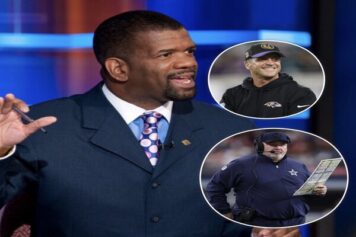Questions of race, gender and sexual orientation have been posed and posed again, and then magnified by the echo chamber nature of the many statuses of social media apparatus, built to feed the most narcissistic tendencies of our national collective.
However, these systems are only as positive or negative as the individuals who yell into the virtual microphones. And those messages are only carried as far as the nearest virtual ear are willing to carry them, and so on and so forth.
From a cultural influence perspective, the earnest researcher will find that Black thought and expression have not only fueled American entertainment into what it is today, but science, medicine, government, spirituality, theological scholarship, technology, and manufacturing, among a myriad of other realms I’m certain I have forgotten.
This magnificence, this purposely obscured American philosopher’s stone, has attractive properties on folks, both positive and negative. However, in instances such as ours, a culture exists within a larger paradigm. One that is part symbiotic, part predatory, where we discover historic and contemporary instances of “Blackface”, passing for Black, internet Black phishing, or being a “wigger’’.
People Pretending To Be Black Is Another Type of Karening
White American performers praising and learning from African-American cultural progenitors, before stealing from and ultimately usurping their legacies altogether, has been apparent in entertainment for as long as many of us can remember. The more nefarious nature of cultural usurpation, however, is something our society rarely talks about in-depth outside of Black Twitter and a handful of other digital spaces.
The existence of Rachel Dolezal, a former president of the Spokane chapter of the NAACP who was outed as a straight up white woman, would later lead to Vijay Chokalingam, brother of comedic actress Mindy Kaling, admitting that he claimed to be Black on a med school application in the 90s to “take advantage” of affirmative action.
While Kaling immediately and publicly reprimanded her younger brother, at least one or two of the hair-brained, anti-Black thought processes that led him to make this decision came from “home”.
Last week, Black studies professor, noted author, activist and voice on Afro-Latina issues Jessica Krug, who called herself Jess La Bombalera (For crying out loud!), revealed herself to be a complete fraud and nut cake of the highest order.
She’s not Afro-Latina, she’s not from the Bronx, she doesn’t have any immediate African ancestors and is actually a very confused White Jewish woman from a suburb of Kansas City, Kansas.
Below is an excerpt from Krug’s statement, which was published on Medium.
“To an escalating degree over my adult life, I have eschewed my lived experience as a white Jewish child in suburban Kansas City under various assumed identities within a Blackness that I had no right to claim: first North African Blackness, then US rooted Blackness, then Caribbean rooted Bronx Blackness. I have not only claimed these identities as my own when I had absolutely no right to do so — when doing so is the very epitome of violence, of thievery and appropriation, of the myriad ways in which non-Black people continue to use and abuse Black identities and cultures.”
On Culture Vultures, Culture Leeches and Elvis
Many of us were happily unaware of the existence of cultural vultures and usurpers until the phenomenon intruded upon something we liked. Hip-hop is when many in Generation X and beyond became aware of it, but conversations with Grands, Uncles and Greats remind us of the permanence of this type of behavior in American societal history.
From abolitionist Martha Griffith Browne, who wrote “An Autobiography of a Female Slave” under an assumed identity as a white woman in 1857 to raise funds to resettle them, according to the NYTimes, to Clarence King, a 19th-century man of means who lived a double life with a Black wife and five children in Brooklyn and Queens, and as a well-known explorer while in Manhattan, to Mark Stebbins, a politician in Stockton, California who identified himself as Black and won an election in a Black and Latino voting district, before being recalled for his deception after the fact, the donning of Blackface is destructive and comes from a place of hubris, narcissism and delusion.
How bold for one to not only dress and identify as Black in Black spaces and speaking on the behalf of Black folks with a White worldview peeking from under a frizzy wig or brown makeup?
While it may be easy for some academics to brush off the effects that culture vultures in entertainment have on society as a whole, what say they about White women dressing up as Black women, speaking as Black women and testifying to the experiences of Black women, while not being of African descent?
Though historically, there are instances where this has been done in the name of love for a particular culture, person, place or thing, I’d dare say most of it is from a “violent place of anti-Blackness’’. Indeed, the ultimate goal of the usurper is to replace the usurped.
White Faces Wearing Blackface Been a Disgrace
Though unfair to expect Whites who may have sincerely reasoned that their efforts were out of love, support and allyship for the overall struggle for Black Lives in America to readily step forth, back when to openly to do so may have resulted in lynching, the continued existence of a phenomenon in which individuals, who are protected under the shield of whiteness that the whole of American society affords them, continually perform cultural Blackface and Black phishing is beyond problematic.
For the individual claiming that such behavior is in any way harmless, I urge you to ponder the overall effect. We’d be better served by our allies being in the open, loud and respectful of our struggle and dignity.
We are the American oracle when it comes to cultural expression. But with this knowledge came a Holocaust’s grisly toll of twisted, lacerated, drowned, gashed, burned and otherwise disrespected Black bodies.
The “blues” that made hipsters love Robert Johnson on “Crossroads” came from the same place as that on “Smile For Me” by Tupac and Scarface. It is the pain of marginalization, second class citizenship, survival amid both White aggression and Black depression. That’s a truth “they” are missing.
Though Elvis Presley may have loved Black music, people and culture, the record labels wanted him to replace Chuck Berry, Little Richard and James Brown.
Though White rappers may love Black music, people and culture, their record labels want them to replace your favorite Black star. In the entertainment sphere, money is the easy excuse. Capitalism drives all sorts of behavior.
Conclusion
Both Rachel Dolezal and Jessica Krug aka La Bombalera (LOL) were African Studies professors and influenced Black culture from a place of falsehoods. Both took up scholarships, grants, media, attention and resources from Black women who were far more deserving than they. Neither can ever apologize, shuck and jive, rationalize or quantify the amount of damage they and people like them do when wearing Blackness as a costume. No real ally would ever do that.



